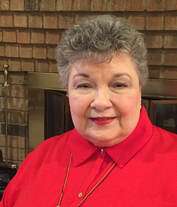|
by Delores Carr  Photo by Viviana Rishe on Unsplash Photo by Viviana Rishe on Unsplash Late in October, my daughter e-mailed me and said, “Remember you mentioned a while back that your father’s side of the family never gets together since your grandmother passed away? How would you like to do a family reunion the Saturday after Thanksgiving at your house? I will help you.” So, invitations went out; and simple cook-ahead food like meatballs, homemade soup, and slaw was planned. Family members were asked to contribute finger foods or a dessert. My cousin, who lives about two hours away, contacted all his kids and grandkids, and then let me know he was bringing thirteen. Some I had never met. My uncle, his father and my late father’s brother, planned to come with him. I was so excited! Altogether, thirty-one people—five generations from ages 91 to 2 months--gathered in our home that evening. Our home is not large, but it was fun being all together in a tight space. We had a great time catching up and becoming acquainted with younger ones and new in-laws. It was a blessing. My uncle, my cousins, and I reminisced of Christmases long past when the family gathered on the Sunday before Christmas in my great-grandmother’s three-room log cabin on her farm in the Ozark hills. It is too bad that we do not keep family closer when we could but just don’t. I encourage you to make the effort to make and keep the connections. While you are thinking in this vein, consider those who may not have any family or whose family live far away. Who of them can you include in activities or Christmas dinner? Perhaps they would enjoy going to your local Christmas parade with you and then to your home for hot chocolate. Or, maybe a neighbor would love to accompany you to your church’s Christmas services or music programs. It may be a great opportunity for them to hear the story of God’s redemption plan for the first time and find that redemption for themselves. We are encouraged in Romans 12:13: Share with God’s people who are in need. Practice hospitality. Hospitality is also encouraged in 1 Timothy 3:2, Titus 1:8, and 1 Peter 4:9. I think you will find yourself blessed.  Delores and her husband, David, have a long and rich history of ministry. From youth pastor to senior pastor, from church planter to teaching in AG Bible colleges, they have covered this nation from coast to coast. Delores has been director and teacher in pre-school programs, filled the pulpit from time-to-time, and a speaker to women's groups. She loves music and writing, and hopes to one day write a book about her family history in the Ozarks.
1 Comment
by Anna Maschmeyer  A ministry family seems to either exist in the assurance of their mission and longevity of their position or in a state of uncertainty and desire for transition. My ministry family recently took a leap and moved to a new church and city across the state. Transition means many things in the ministry, but for me it meant an opportunity to move in faith into untried territory. For years I served the church as pastor and volunteer and taught full-time in a public high school. It was the most rewarding and exhausting life. The students are apathetic, curriculum is challenging to implement, assessments are labor intensive, actual learning is complex to assess, and federal and administrative regulation is exhausting. I loved teaching, but the all-encompassing nature of my pastor life and my teacher life took everything out of me.  Roughly three years ago, I began to pray for a better way to do life. I wanted to devote more time to our family and serve the church in a healthier capacity. Our family deserved more of me than it was getting. I intensely wanted to reserve the best of me for my girls, husband, and church. As I sought the Lord for a way to accomplish this, two things became clear. First, God spoke deeply into my heart that my calling was not about my career, but about being more like Him. I had preached this for years. Yet suddenly, it wasn’t just something to say. Jesus did not need my effort at school, my worries over the job, my time preparing lessons and grading; He needed my heart. My job was distracting me from giving Him my full attention. I was in essence serving two masters.  A year ago, we began thinking about transition to a new position. One of the things I wrote in my journal as we began to pray over the transition was, “Lord, I want to be free of the classroom.” I was not trying to be a stay-at-home-mom. As a driven, independent woman, I champion college and career ambition for my female students. So I looked for a position in a school, but out of the classroom. I thought just being out of the classroom would be enough. When we relocated, the timing of the move meant teaching jobs were not available. As I’ve sought the Lord and explored options, more and more I was called to walk away from my career to be more like Jesus. Since August, I have started teaching our oldest to cook and do laundry. We finally have a regular chore schedule (something I never had time to put together before) for all three girls. My husband and I have been on a date every week since we’ve moved. I've written a 5-week Sunday School curriculum and taught it. The girls and I have had deep conversations about real things like politics, Jesus, and how to make friends. A couple of times my husband has asked, “Who are you?” because I am not falling asleep on the couch at 7 PM or cranky for no reason. Don’t get me wrong, many of those things I listed above happened in small doses while I was teaching. My girls had chores; we did homework together; we read at night sometimes. My husband and I did date. Our family was not falling apart, but there wasn’t the structure or purpose in our home that I wanted. It was good, but not great. I had two masters constantly pulling me in different directions. The message is that there are good things we can do in our lives and there are God things. Our family was doing good things, but the God things were being squeezed out by exhaustion, stress, time, and mess. Although the budget is tight, I have not been this happy, nor this at peace, in a long time. The lesson I am learning is that discerning His will is seldom about finding a place or a career, but it is always about becoming more like Him. Peace is there for us when we finally submit every area of ourselves, including our careers, to His Lordship. Our obedience even in the anxiety of transition makes us more like Jesus.
QUESTIONS: What have you learned in a ministry transition? About your faith? About yourself?
|
This is a safe place for ministry wives and women ministers to be renewed, resourced, and build relationships with others just like you.
Search Our Blog Archives by Keyword Below
Categories
All
Archives
June 2024
|
Proudly powered by Weebly


